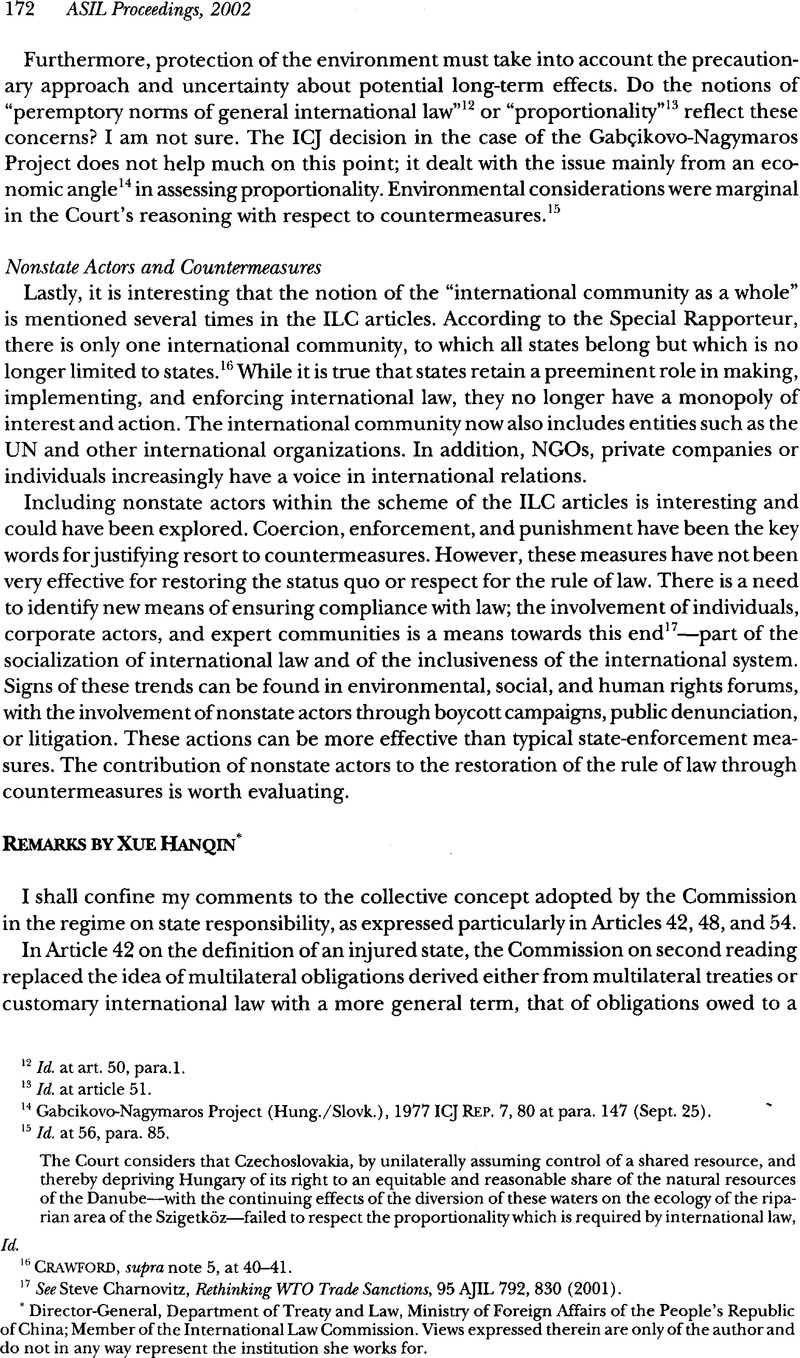No CrossRef data available.
Article contents
Remarks by Xue Hanqin
Published online by Cambridge University Press: 28 February 2017
Abstract

- Type
- The State of State Responsibility
- Information
- Copyright
- Copyright © American Society of International Law 2002
References
1 The earlier version of this article reads to the effect that if the right infringed by the act of a state arises from a multilateral treaty or from a rule of customary international law, any other state party would be considered an injured state, if it is established that:
(1) the right has been created or is established in its favour; (2) the infringement... necessarily affects the enjoyment of the rights or the performance of the obligations of the other States parties to the multilateral treaty or bound by the rule of customary international law; and (3) the right has been expressly stipulated [as protecting] the collective interests of the States parties.
2 James Crawrord, International Law Commission’s Articles on State Responsibility, Introduction, Text and Commentaries 256 (2002).
3 I.L.C. Commentames, Article 42, para. 2, at 295, in UN Doc. A/56/10 (2001).
4 Id. at Article 48(2).
5 Barcelona Traction, Light and Power Co., Ltd., 1970ICJ Rep. 3, 32, at para. 33.
6 Crawford, supra note 2, at 305.
7 Id. at 281-82.




